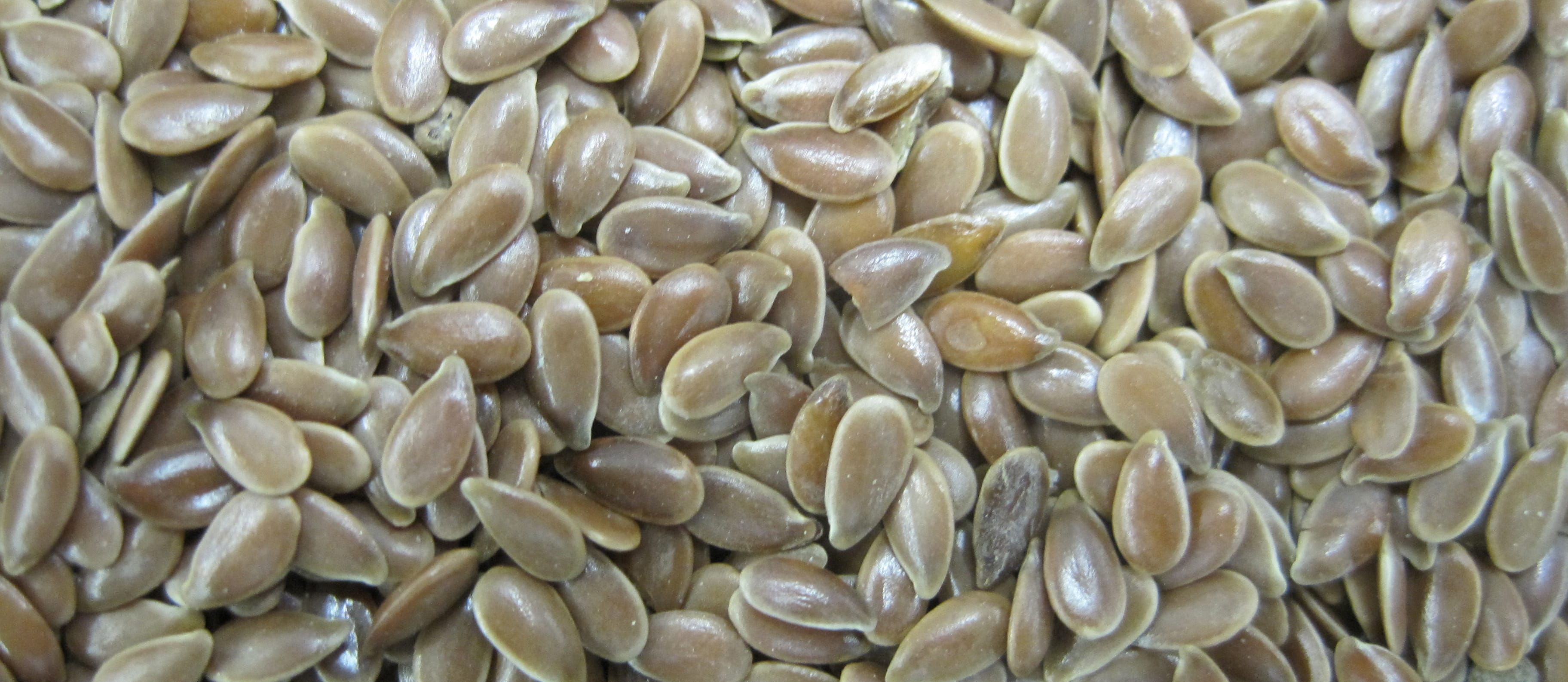A tablespoon a day of ground flax seeds appears to improve ovarian function and is considered a first-line therapy for breast pain associated with one’s period (cyclical mastalgia).
A study I profile in my video Flax Seeds For Breast Pain on the effect of flax seed ingestion on the menstrual cycle found a tablespoon a day lengthened the luteal phase (latter half of the cycle), effectively delaying one’s next period by about a day. Flax seeds also resulted in fewer anovulatory cycles (months in which you fail to ovulate). These are the same kind of improvements in ovarian function that have been found in women eating plant-based diets. In fact, women eating vegan never failed to ovulate in a study comparing meateaters, vegetarians, and vegans, which is similar to what was found in women eating flax daily.
Since the same hormonal changes associated with eating more plant-based diets seemed to improve premenstrual and menstrual symptoms such as breast pain (see my video Plant-Based Diets For Breast Pain), researchers decided to test whether flax seeds would help as well. Although hormone treatments can be helpful, they often cause unpleasant side effects and there may be risks associated with long-term hormonal therapy. Dietary flaxseed is therefore an attractive alternative for controlling these symptoms.
So, 116 young women with severe menstrual breast pain were randomized in a double-blind study and given either a muffin containing about 3 and a half tablespoons of flax seed or a placebo muffin with no flax, and then followed for a few cycles. There was some placebo muffin effect, but there was a significantly greater reduction in reported breast pain, breast swelling, and breast lumpiness in the flax seed group. The study concluded that “flax seed is effective in relieving symptoms of cyclical mastalgia without significant side effects and might be considered as an alternative treatment for cyclical mastalgia.”
But if flaxseed works, and there are only good side effects, why is it an alternative treatment? Why isn’t it the primary, first-line therapy? Well, the American Congress of Obstetricians and Gynecologists has not issued treatment guidelines, but the Society of Obstetricians and Gynaecologists of Canada has. In their official guidelines they dispel the myth that caffeine is to blame or that vitamin E supplements are helpful. Instead, they prescribe dietary flaxseed “as a first-line therapy for cyclical breast pain.” Drugs are to be considered only if the flax doesn’t work.
So nice to see a professional medical association prioritize safe, natural therapies! See my video series that includes Medical Associations Oppose Bill to Mandate Nutrition Training to see the mentality here in the States.
Do Doctors Make the Grade? Unfortunately, Doctors Know Less Than They Think About Nutrition. This is largely due to the lack of Medical School Nutrition Education, though there also may be The Tomato Effect.
I’ve previously hailed the power of flax in videos such as:
- Breast Cancer Survival and Lignan Intake
- Flax and Fecal Flora
- Prostate vs. Plants
- A Better Breakfast
-Michael Greger, M.D.
PS: If you haven’t yet, you can subscribe to my videos for free by clicking here and watch my full 2012 – 2015 presentations Uprooting the Leading Causes of Death, More than an Apple a Day, From Table to Able, and Food as Medicine.
